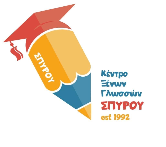For language teachers and educators.
The exam period is looming on the horizon, while practice tests, vocabulary lists, and more exam-related instruction begin to intensify. You are flirting with the idea of incorporating some extra slots of “teaching” the test while assigning some extra homework sounds like a good prescription for bridging those “last learning gaps”. “Now, it’s time to push”.
Still, little progress is made. You see your students’ motivation, productivity, and psychology being sabotaged. “It’s just a few weeks”.
No, it’s not supposed to be easy.
But neither is learning in general. When it comes to language learning, exam performance is one thing, communicating in real life is another. If educating our learners is included in the equation as well, then one should keep in mind that building life skills, discovering the world in the foreign language, and learning how to learn is what really matters. The exam period should not make us forget that there is no fixed timeline for (language) education.
Do not get me wrong. Of course, students should familiarize themselves with the test format, do some practice, work on some exam-related strategies, and learn how to manage stress. But exam anxiety is already difficult to cope with. Why add to that an extra dose of negativity and the unnecessary burden of cramming things into your students’ heads?
Well-being and progress go hand in hand, so here are some things to keep in mind if you are teaching an exam class this year:
1) Plan ahead and allocate wisely:
The fact that your students are sitting for a language exam does not mean you should spend the whole year “training” them for the test per se. There is no point wasting your and your students’ time and energy on something that is fixed and does not necessarily help retain information. Besides, it’s quality over quantity! Having said that, a couple of months before the exams, you can spend 1/3 for exam prep, 1/3 for feedback and reflection, and 1/3 for some fun, educational activities that will help both teachers and learners to wind down.
Consider the following example!
Mr. Smith is teacher of a B2 class this year. It’s February and he must start preparing his students for the upcoming exams that are taking place in May. It’s Mr. Smith’s first year of teaching an exam-prep class and he feels that “experimenting” will do more harm than good so he is going all-in for an old-school approach; tests after tests, going over some important answers, highlighting, and note-taking. Mr. Smith loves his job but he feels that he’s losing his students and bringing back the lost spark of learning onto his students’ faces appears to be more difficult than ever.
He decides to do something “riskier”, “less conventional’, something “braver”.
He will spend one lesson for exam-prep (this means 1 test/per 3 weeks), one for feedback and reflection, and one for something fun and educational!
For this third lesson, he chooses an interesting topic and asks himself how his students will think deeply about it, work on it in English, and collaborate. He ends up bringing in class an interesting video about social media and its effects on teenagers! His students are asked to find a teenager from the video whose perspective is very similar to theirs. After a fruitful discussion on how social media has been affecting teenagers’ lives followed by some language-based activities, Mr. Smith goes on to introduce the next task; a debate.
His students are given different roles and they are asked to shift their perspectives according to their allocated role. They get so caught up trying to synthesize their arguments and interact in English that Mr. Smith is now a happy facilitator whose only last mission is to observe, give and ask for his students’ feedback!

2) Resist the temptation of reviewing in a ‘meta’ way:
Metalanguage is for linguists. Our students are language learners. As language teachers and most importantly EDUCATORS, our role is to provide meaningful interaction in the foreign language and create the right conditions for new, educational, and fun learning experiences. Giving in the temptation of talking ABOUT the language not only is unnecessary but also counterproductive as it will deprive your learners of the opportunity to actually USE the language in a communicative and meaningful way.
3) Show you care:
Doing daily check-ins with your students to find out how they feel and why, must be your go-to opening routine. Feeling heard is fundamental. Very often your students will confess to you that they hadn’t done that exercise you had assigned the other day because they had been feeling overwhelmed with something else. That’s perfectly ok. Student-teacher relationships, like all relationships, must be based on some core values, like honesty and mutual understanding. Consider this confession as a sign that your relationship is actually working.
4) Give them space:
When students’ motivation is at risk invest more in communicative lessons, give them more choice, gamify some activities, and sometimes, compromise. Afterall, a successful lesson is an engaging one, where everyone is actively involved. Find what FEELS right for this last week before the exams; it may be a speaking lesson, a roleplay lesson, a video-based lesson, a project-based lesson, or even a fun workshop. Do not be afraid to ask your students’ opinion and let them choose from the available options. Not only will they feel more involved in their learning but also more independent.
5) Be there:
Building rapport from day one is key. Your students are human beings who need you to keep being patient, caring, and supportive. It’s a tough time for everyone, but building resiliency is not something we should expect only from others, but from ourselves as well. Life is difficult. Finding ways to decompress before and after the lesson is highly recommended.
Finally…
6) Be consistent:
Do not let yourself be carried away by that colleague or parent who sees last-minute exam prep as a panacea. Trust your guts, stick to the true essence of education and listen to your students’ needs. Above all, do not be afraid to try something new, learn from your mistakes, and let your students learn too!
DISCLAIMER! The views presented are my own and do not represent the opinions of any entity with which I have been, will be, or am currently affiliated.


